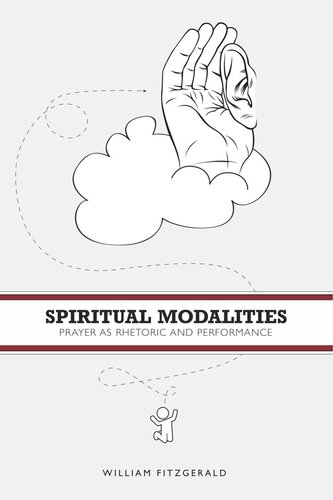

Most ebook files are in PDF format, so you can easily read them using various software such as Foxit Reader or directly on the Google Chrome browser.
Some ebook files are released by publishers in other formats such as .awz, .mobi, .epub, .fb2, etc. You may need to install specific software to read these formats on mobile/PC, such as Calibre.
Please read the tutorial at this link: https://ebookbell.com/faq
We offer FREE conversion to the popular formats you request; however, this may take some time. Therefore, right after payment, please email us, and we will try to provide the service as quickly as possible.
For some exceptional file formats or broken links (if any), please refrain from opening any disputes. Instead, email us first, and we will try to assist within a maximum of 6 hours.
EbookBell Team

4.7
26 reviewsA bold recasting of prayer as a rhetorical art, Spiritual Modalities investigates situations, strategies, and performative modes of discourse directed to divine audiences. Examining how prayer “works,” Spiritual Modalities reads prayer’s situations and strategies, its characteristic acts and attitudes, to advance an understanding of prayer as a basic expression of our rhetorical capacities for communication and communion. This groundbreaking analysis demonstrates how prayer draws on fundamental capacities to engage other beings rhetorically to argue that we are never more human than when we address the nonhuman.
Spiritual Modalities is notable in its aim to articulate a critical rhetoric of prayer in a secular idiom. It draws on contributions to rhetorical theory from Kenneth Burke along with a broad range of classical and contemporary perspectives on audience, address, speech acts, and modes of performance. The book also takes a multicultural and multimodal approach to prayer as rhetorical performance. The texts and practices of prayer represented range across religious traditions and historical eras and include both verbal and physical modes of divine address. The book will be of interest to scholars researching religious language, Burkean approaches to discourse, practices of memory, and media studies.